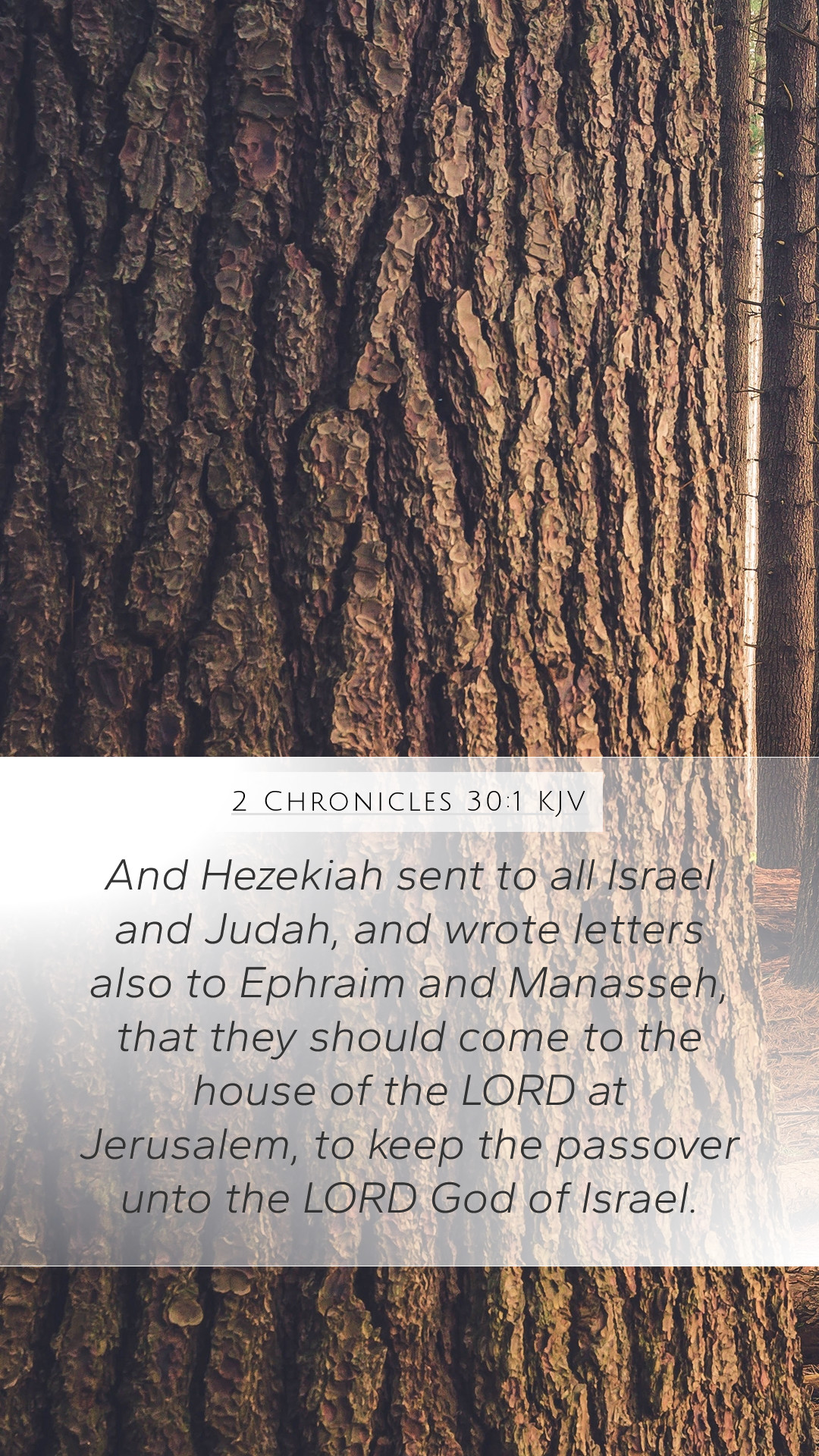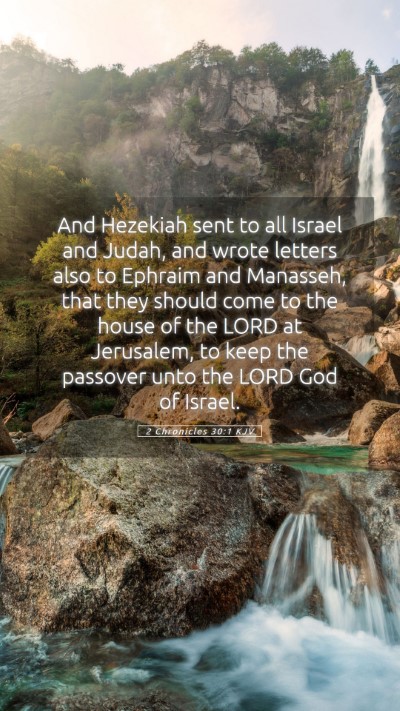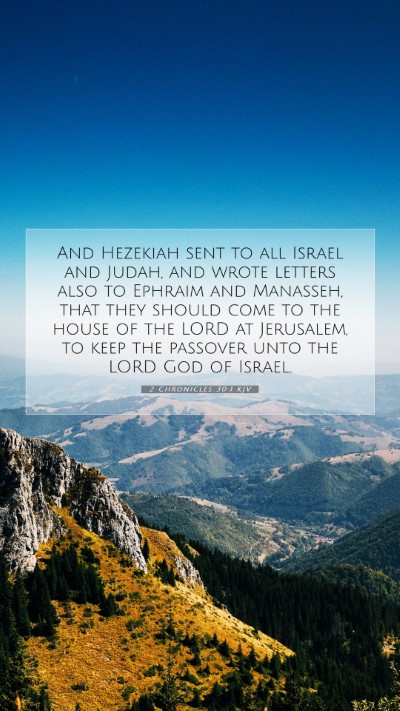Understanding 2 Chronicles 30:1
2 Chronicles 30:1 is a significant verse that marks a pivotal moment in the history of Israel, demonstrating King Hezekiah’s commitment to restoring true worship among his people. In this verse, King Hezekiah sends messengers throughout all Israel and Judah, inviting them to come to Jerusalem to celebrate the Passover. This act reflects efforts to reunite the divided kingdom and re-establish the worship of Yahweh, which had been neglected.
Meaning of the Verse
This verse emphasizes several key themes critical for understanding its message:
- Restoration of Worship: Hezekiah''s invitation to celebrate Passover indicates a desire to restore proper worship and covenant community.
- Unity: By reaching out to the northern tribes, he aims to unify the entire nation, which had been divided.
- Faithfulness to God: The invitation reflects Hezekiah’s dedication to God’s commandments and his desire to bring the people back to obedience.
Biblical Exegesis of 2 Chronicles 30:1
According to Albert Barnes, this verse sets the groundwork for an important national religious event and highlights Hezekiah’s role as a reformer. It showcases the king’s proactive attempts to engage the people and reflect on the importance of the Passover festival as a remembrance of God’s deliverance.
Matthew Henry notes that Hezekiah's call to the people reflects an earnestness in his character, as he did not only make reforms but also actively sought participation from his subjects. This demonstrates a model for leaders who wish to guide their communities back to fidelity in faith.
Adam Clarke elaborates on the historical context, suggesting that the neglect of the Passover was a significant offense against God. He emphasizes that this act of calling for the Passover is not merely a tradition but a spiritual awakening. Clarke highlights how the observance of Passover is essential for recognizing God's saving power in the lives of the Israelites.
Scripture Analysis
The invitation to celebrate Passover in this verse can also be viewed through the lens of:
- Historical Context: The people of Israel had strayed from the faith of their fathers; therefore, Hezekiah’s call was a significant step towards national revival.
- Symbolism of Passover: The Passover not only commemorates the Israelites' liberation from Egypt but also symbolizes redemption and the covenant relationship with God.
- Theological Implications: This gathering foreshadows future gatherings of God’s people, unifying them under God’s covenant promises.
Application of the Verse
For modern readers, 2 Chronicles 30:1 serves as a call to action, inviting believers to reflect on their commitment to God. It presents opportunities to assess community worship practices, urges participation in communal religious observances, and advocates for the restoration of spiritual health in congregations.
In terms of:
- Bible Study Insights: This verse is a potent starting point for discussions on renewal and restoration in personal faith and communal worship.
- Applying Bible Verses to Daily Life: Leaders in Christian communities can take inspiration from Hezekiah’s leadership approach.
Related Bible Cross References
- Exodus 12:1-28 - The establishment of Passover.
- 2 Kings 18:1-6 - Hezekiah's reforms and trust in God.
- 2 Chronicles 29:2-11 - Hezekiah's previous reforms.
Conclusion
2 Chronicles 30:1 is not merely a historical record; it is a rich source of instruction regarding worship, leadership, and the call to unity among God's people. As we engage with this verse, we uncover deeper meanings that inform our understanding of Scripture, igniting both personal reflection and communal revival.
In summary, exploring the meanings of Bible verses like 2 Chronicles 30:1 can significantly enhance one's Bible study experience, offering a wealth of insights and applications for both personal faith journeys and collective worship practices.


